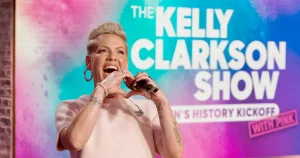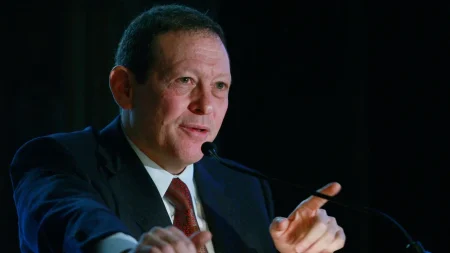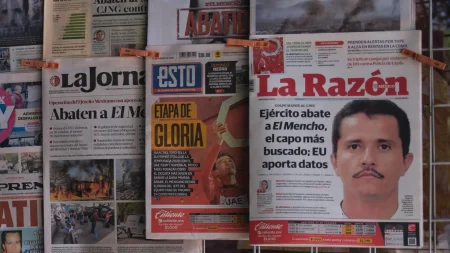Lara Trump’s Foray into the Music Industry: A Blend of Politics and Entertainment
Lara Trump, daughter-in-law of former President Donald Trump, is adding a new dimension to her multifaceted career: music. Already a prominent figure within the Republican Party, having served as a campaign advisor and RNC co-chair, Trump is now poised to release a full-length music album, following the release of several individual tracks, including a cover of Tom Petty’s "I Won’t Back Down." This venture marks a significant step into the entertainment industry, raising questions about her artistic aspirations and the potential intersection of politics and music. Collaborating with executive producer LJ Fino, known for his work on politically charged musical projects, Trump’s album promises to generate considerable interest, particularly within conservative circles.
The album’s content and direction remain largely under wraps, with Fino confirming only a collaboration with rapper French Montana. This unexpected pairing hints at a potential crossover appeal, aiming to reach beyond traditional conservative audiences. Trump’s previous musical releases, combined with her strong social media presence and political connections, suggest a calculated strategy to leverage her existing platform to gain traction in the music industry. This move follows her recent launch of an athletic wear line, signaling a broader ambition to expand her brand and influence.
Fino’s involvement underscores the album’s potential political dimension. He has carved a niche for himself producing music tailored to the "America First" audience, estimating its market value at over $100 million. This strategy involves tapping into a perceived underserved market of conservative music consumers, particularly those outside of the genre’s traditional boundaries like country music. Fino points to his success with politically themed rap records as evidence of this market’s viability, envisioning a lucrative space for music explicitly catering to conservative listeners. He aims to capitalize on this audience’s purported willingness to purchase downloads and vinyl, in addition to streaming, and plans to launch artist-specific mobile apps to further monetize fan engagement through merchandise, tickets, and VIP experiences.
The project’s potential profitability has drawn both excitement and skepticism. While some industry insiders acknowledge the market’s potential, others question the $100 million valuation. The music industry’s overall revenue is substantial, but the specific size of the conservative music market remains uncertain. Experts point to the broader trend of ideological divisions across various industries, including media and consumer goods, suggesting that music could similarly fracture along political lines. This division creates an opportunity for artists and labels to cater to specific ideological niches, as seen with the emergence of conservative-themed products in other markets.
The album’s distribution strategy, particularly the emphasis on downloads, has also drawn skepticism. Industry experts note the declining popularity of paid downloads, with even free downloads seeing low redemption rates. However, the focus on physical sales, especially vinyl, is viewed more favorably. The higher profit margins associated with physical media, combined with the potential willingness of a dedicated fanbase to purchase such items, could prove a more successful avenue for monetization. The success of this strategy hinges on the size and engagement of Trump’s audience, their willingness to pay for music, and the effectiveness of the marketing and distribution efforts.
The confluence of Lara Trump’s political background, Fino’s strategic targeting of the "America First" audience, and the evolving landscape of the music industry create a unique and potentially impactful scenario. While the album’s ultimate success remains to be seen, it represents a notable attempt to bridge the worlds of politics and entertainment, tapping into a niche market that has become increasingly visible in recent years. The project’s outcome will likely shed light on the viability of this politically charged approach to music and the potential for future endeavors in this space. Whether this venture will translate into significant financial success or primarily serve as a platform to further solidify Trump’s presence within the conservative sphere remains an open question. Her entrance into the music industry adds another layer to her public persona, blurring the lines between politics, entertainment, and entrepreneurship.











